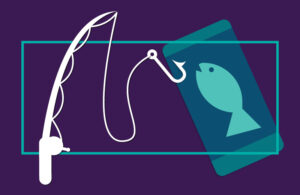Press Release Spam and Newsbaiting
 Gone are the days when members of the media are the only people reading your press releases. Thanks to the online distribution model, press releases are now transmitted to thousands of web sites and millions of e-mail inboxes. This is certainly the heyday for easy mass distribution of information, but it comes at a cost for the public relations industry.
Gone are the days when members of the media are the only people reading your press releases. Thanks to the online distribution model, press releases are now transmitted to thousands of web sites and millions of e-mail inboxes. This is certainly the heyday for easy mass distribution of information, but it comes at a cost for the public relations industry.
What Happens When You’re the Contact On a Press Release
A few weeks ago, my employer issued a press release announcing the launch of a new product. I was listed as the public relations contact. A toll-free number at the end of the press release directed calls–unbeknownst to the caller–to my home office. The phone rang off the hook. It wasn’t the media calling, however.
Within five hours of my company’s press release hitting the wires, no less than ten salespeople called me trying to hawk me services. One guy kept me tied up on the phone for over 10 minutes as I desperately tried to get him off the line. Another caller became audibly angry when I told him I wasn’t interested in his company’s service. Another caller was already trying to replace a partner whom my company had just announced in the aforementioned press release. For lack of a better term, we’ll call what happened to me “newsbaiting.” As such, I am a newsbaiting victim.
Unfortunately, dealing with these calls is one of the prices of sending out press releases. You need to supply your contact information so members of the media can call.
But you should expect that some of the people who will call will be trying to sell you something and be prepared to cut that conversation off so you can spend your time dealing with more important matters.
Public Relations Spam
We were going to use the term “public relations spam.” Many people in the industry already use that term to label mislabeled and off-target press releases–or what are supposed to be press releases–emailed to the media. Public relations spam is a serious problem but most of the damage is confined to the media who have to wade through useless press releases regardless of spam filters. Changing email accounts is a harsh reality many journalists face as a result of public relations spam. Newsbaiting is more predatory, costing both loss of time (as in the case of public relations spam) but also opening up the victim to loss of money and focus.
Who Tends to Call to Pitch Their Services
Disreputable Press Release Distribution Services
The most basic type of newsbaiting comes from disreputable press release distribution services. Quality services like eReleases don’t need to call to pitch their services. Unfortunately, this industry is full of low quality, even disreputable press release services who actually do almost nothing to get you actual press coverages.
Representatives of these companies call or spam press release contacts with promises of cheaper or wider press release distribution. Most of the time they are lying. In fact, I’ve never been solicited for press release distribution business from a quality distributor, and my feeling is that there is an unspoken rule that the competing newswire services don’t try to poach customers. I do not take kindly to people spinning a sales pitch at me that is filled with lies when I am expecting the person emailing or calling me to be a member of the media.
Business Service Providers
Press release distribution services are not the only newsbaiters. There are plenty of other “service providers” who prey on public relations contacts, especially those representing small businesses and organizations. Selling everything from web design and hosting services to back-end software and CRM solutions, newsbaiters look at press releases as sales leads, and nothing else. The purpose of a press release, of course, is not to draw sales calls but calls from the media.
Pay-For-Placement Scammers
One of the most prominent group of newsbaiters are people conducting pay-for-placement scams. This is where a company promises to produce a news segment about your company or an interview with one of your executives. The pitch here is that they will get you on television or the radio. For the most part, this is a lie.
Pay-for-placement video news services produce nothing more than high-priced video clips. They tell you that the news media don’t have the time and don’t want to spend the money to do a television segment on your company. If only you paid all the expenses, they claim, television stations will air your segment. Wrong.
Over the past few years, many pay-for-placement video news services have been exposed as frauds. Others, meanwhile, are nothing more than expensive commercial video services that charge “underwriting fees” and then air their programs late at night or early in the morning on paid programming slots on cable networks. Either way, press releases seem to be the best lead generators for these companies.
For example, a few years ago, I put out a press release for my web site. Within an hour, a producer from an outlet purporting to be a television news magazine called me. The producer, it turned out, was just a salesperson for a pay-for-placement video news service trying to get me to pony up $10,000 to produce a spot for an in-flight news program. The press release, of course, led them to me.
What Should you do When Non-Media People Call
When you’re listed as the press release contact and receive calls from salespeople instead of media, here are some recommended steps:
- Politely inform the caller: Let them know that the contact information is for media inquiries only.
- Be brief: Keep the conversation short to minimize time spent on non-media calls.
- Direct them appropriately: If your organization has a dedicated channel for sales inquiries, provide that information.
- Screen calls: Consider using caller ID or having calls screened by an assistant if possible.
- Update contact information: If it’s a persistent issue, consider updating the press release format to clearly state “For Media Inquiries Only” next to your contact details.
- Use a dedicated line: If feasible, set up a separate phone number exclusively for media contacts.
- Document repeat offenders: Keep track of persistent sales callers and consider blocking their numbers if necessary.
- Maintain professionalism: Even if frustrated, remain courteous as the caller may have genuinely misunderstood the purpose of the contact information.
As in any situation where you are on the receiving end of a sales call, you should always conduct due diligence about a company offering a product or service. If you receive a sales call in the wake of issuing a press release, it’s good to think twice about whether you even want to waste your time dealing with someone whose sales call log is based on reading the day’s press releases.
This article, written by Ben Silverman, originally appeared in PR Fuel (https://www.ereleases.com/prfuel), a free weekly newsletter from eReleases (https://www.ereleases.com), the online leader in affordable press release distribution. To subscribe to PR Fuel, visit: https://www.ereleases.com/prfuel/subscribe/.
